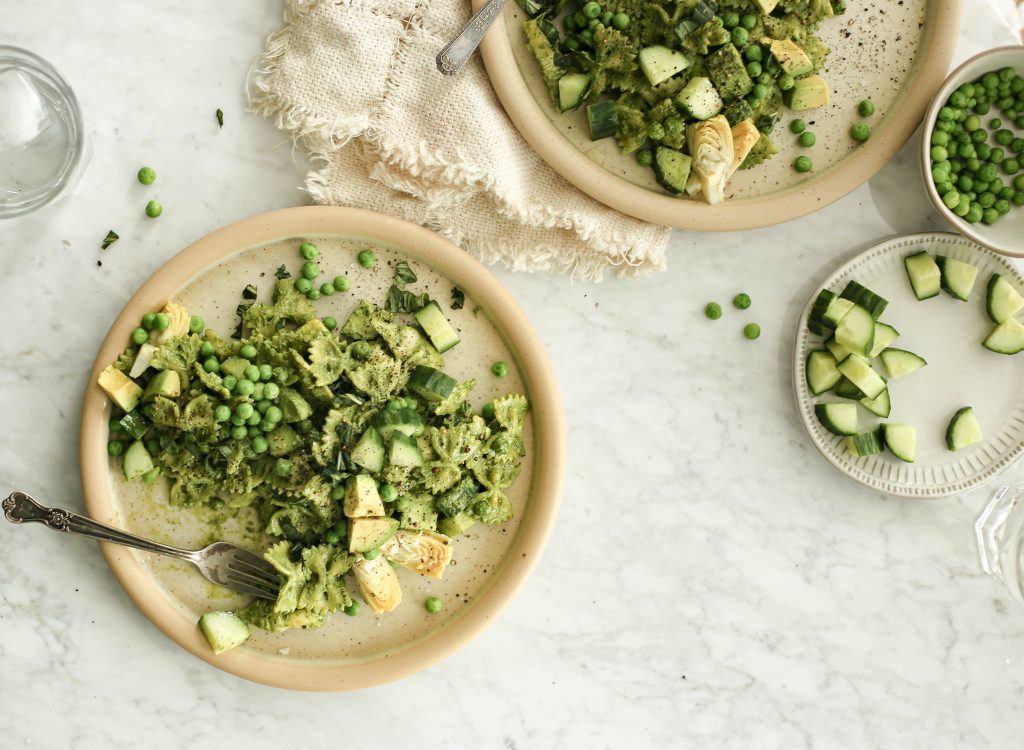Dry January Could Be a Major Boost to Your Gut Health—An Expert Explains
Pass the kombucha, please. The post Dry January Could Be a Major Boost to Your Gut Health—An Expert Explains appeared first on Camille Styles.

After a few weeks of holiday parties and even more holiday cookies, the inevitable happens: we double down on our leafy greens and commit to ditching alcohol through the month of January. And while that’s all well and good, without a real understanding as to why we’re making these behavioral shifts (beyond joining the Dry January fervor), it’s not likely to amount to any lasting, positive change. It’s a truth we now know well about making resolutions in the new year—without setting clear intentions first, we’re likely to get lost along the way. That’s why, when I learned about the connection between alcohol and gut health, I knew it would be a boost to helping my booze-free resolutions stick.
Among all the buzzy wellness words, there’s perhaps nothing that’s caught the health-inclined conscious more than gut health. It affects everything from our skin to immunity to our digestion. And while what you eat, the supplements you take, and your ability to manage stress in your life all can impact your gut health, more and more, we’re learning that our drinking habits play a key role as well.
Featured image by Christie Graham.
1 of 7

Subscribe
Sleep well.
Sign up to receive a FREE E-BOOK with 12 steps to your best sleep ever.
Thanks for Signing Up!
Oops!
Looks like you’re already signed up or your email address is invalid.
Oops!
Looks like you unsubscribed before click here to resubscribe.
Alcohol and Gut Health: The Surprising Connection
For answers to all our questions about the link between alcohol and gut health, I got in touch with Daina Trout, MS MPH. Daiana is the Chief Mission Officer and co-founder of Health-Ade Kombucha (a favorite among all of us here at Camille Styles). She’s spoken and written extensively about alcohol and its impact on your gut, so I knew she would be the perfect person to clear the air. And today, we cover it all.
Keep reading to learn how much alcohol is okay to drink, the toll alcohol can take on our immunity, and strategies for counteracting alcohol consumption to keep your gut healthy. Let’s get into it.
2 of 7
Is there any amount of drinking that’s okay?
Studies show that after just two to three days in a row of more than two drinks, on average, a meaningful negative change in the gut takes place. There is a significant increase in pathogenic bacteria and bacteria that produce inflammation and a significant decrease in bacteria that fight infection and inflammation. There is also a reduction in overall abundance of microbes, an increase in gut permeability, and an interruption of your circadian proteins. All these things can cause so many health issues. From increased likelihood to get sick and digestive issues to messed up sleep and achy joints. It truly wreaks havoc when you cross the line of too much.
While I really do enjoy alcohol, it is the thing probably most unhealthy to our microbiome when we have it in excess.
On the other hand, research has found that when you consume two or less drinks no more than a couple times a week, alcohol isn’t as damaging to a healthy gut. That may be your sweet spot if you’re looking for one! The most important thing here is to listen to your body. All these studies are done on groups of people, so the outcomes are averages and may not be YOUR number. In general, drinking less will be better for all, but you may be more or less sensitive than the average, so that’s why we always say: FOLLOW YOUR GUT!
3 of 7
How effective is Dry January in terms of resetting the body?
The long-term benefits of taking a break from alcohol, like Dry January, haven’t been hugely studied. However, most would probably agree it wouldn’t be a bad idea, provided you don’t overcompensate with 10 drinks on February 1. What I find to be more effective long-term is mindful drinking—learning how to have a healthy relationship with alcohol where you can enjoy it but not have too much.
4 of 7
Immunity is another top-of-mind concern during this time of year. How does alcohol affect and even compromise our immunity?
Alcohol, immunity, and gut health are very connected. It is now understood that immunity is very much driven by our microbiome. We can have bacteria that cause our bodies to be worse at fighting infection and bacteria that can strengthen it. Alcohol, after excess exposure, quickly tips the scales to support a microbiome makeup that is weak at fighting infection. Alcohol also injures our intestinal walls, widening the space so all kinds of toxins can enter our bodies, causing problems where they land. This also compromises our immunity, and not just in the short term.
5 of 7
Similarly, mood tends to dip and many people experience seasonal affective disorder in the winter. How can alcohol consumption make this worse?
One of (if not THE) biggest drivers of our mood is our gut. An abundant and healthy microbiome is repeatedly connected to people feeling good about themselves and decreased depression and anxiety. The opposite is true with a microbiome that’s less abundant and pro-inflammatory. Because excess alcohol consumption is bad for the gut, and causes the wrong microbes to flourish, you may not be surprised to hear that a major side effect of too much alcohol is feeling down and low energy.
6 of 7
Are there ways we can counteract alcohol consumption and its effects on the gut?
By exposing your gut to healthy bacteria and tons of prebiotics, and avoiding the things that hurt it, you can improve your gut health. You can boost your microbiome by:
Feeding your gut a variety of high-fiber foods like fruits and veggies. Eating/drinking fermented foods such as kombucha, sauerkraut, kimchi, and kefir on the regular. Avoiding things like alcohol, stevia, and fake sugars that seriously compromise it.Also, you should be careful to take antibiotics only when necessary. That’s another thing that hurts our microbiome, and it can take a year to recover.
What are your favorite alcohol alternatives?
To no surprise, one of my favorite alcohol alternatives is kombucha. It’s tasty, tangy and subtly sweet. I love champagne and think it’s the perfect replacement drink when I’m in the mood for something bubbly, especially if you put it in a flute!

 Astrong
Astrong 






























